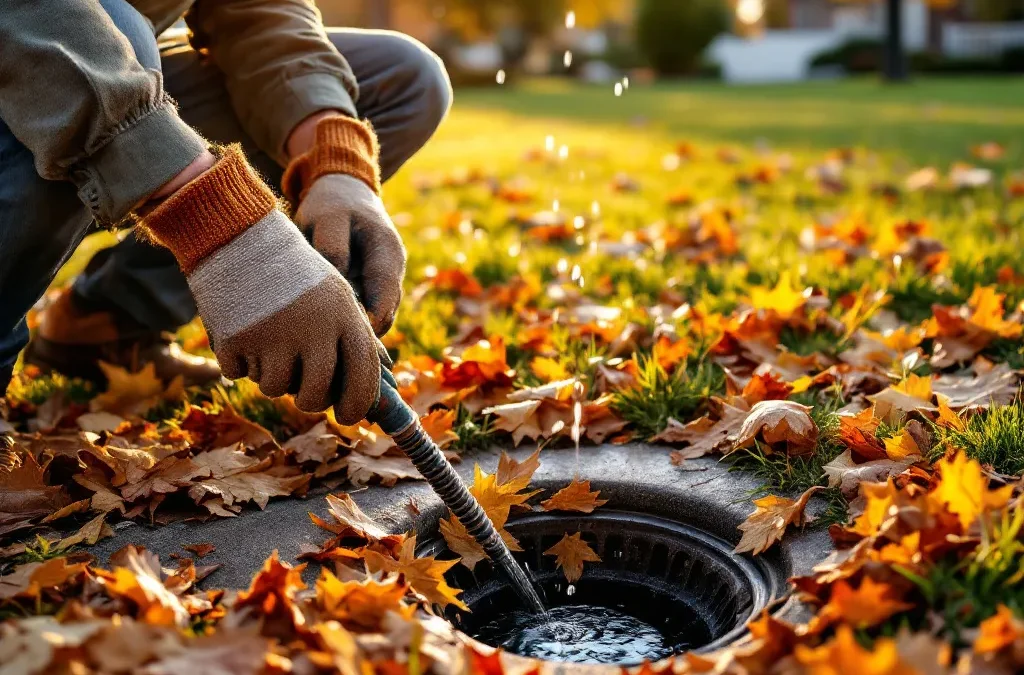Introduction
Drain maintenance is crucial for preventing flood damage, a problem that can lead to costly repairs and significant property loss. A well-maintained drain system functions effectively, redirecting water away from homes and buildings. Neglecting this essential maintenance can result in overflow, flooding, and even structural damage, emphasizing the importance of regular upkeep.
Understanding Drain Systems
There are several types of drainage systems utilized in residential and commercial properties, including surface drains, French drains, and channel drains. Each type serves a specific function, managing water flow based on the layout and design of the property. Common components of these systems include pipes, grates, and catch basins, all working together to ensure efficient water management.
How Poor Drain Maintenance Leads to Flooding
Poor drain maintenance can lead to significant flooding issues, primarily due to the accumulation of debris and blockages. Leaves, dirt, and trash can obstruct flow, forcing water to accumulate and eventually overflow. Additionally, tree roots and invasive vegetation can infiltrate drain pipes, causing further blockages and impairing drainage efficiency. Sediment buildup is another common issue that decreases the overall performance of drainage systems, making regular inspections vital.
Benefits of Regular Drain Maintenance
Regular drain maintenance offers several benefits that extend beyond mere convenience. By maintaining clear drains, homeowners can prevent overflow and flooding, safeguarding their properties from water damage. Moreover, routine care can extend the lifespan of these systems, reducing the need for costly repairs and minimizing the risk of property damage that results from neglected drainage systems.
Key Aspects of Regular Drain Maintenance
To maintain an effective drainage system, it’s essential to schedule regular inspections and cleanings. Homeowners should consider cleaning their drains at least twice a year, with professional help being beneficial for deeper cleans. Utilizing preventive treatments, such as drain cleaners and anti-root solutions, can further enhance drain efficiency and prevent potential blockages.
DIY Maintenance Tips
Homeowners can carry out several DIY maintenance tasks to keep drains flowing smoothly. Identifying early warning signs, such as lingering odors or slow drainage, can help in detecting potential problems early. Basic cleaning techniques, such as flushing drains with hot water or using a drain snake, can be effective in clearing minor clogs. Additionally, seasonal checks ensure that drains are clear of debris, particularly before the rainy season.
When to Call a Professional
While DIY maintenance is beneficial, sometimes professional intervention is necessary. Signs that indicate the need for professional help include persistent backups, unusual smells, or water pooling around drain areas. When selecting a reliable drain maintenance service, it’s essential to research local companies, check reviews, and consider their experience. Generally, professional services may range in cost depending on the complexity of the maintenance required.
For detailed insights on related construction topics, you may also find value in How Weather Affects Commercial Concrete Pours and Understanding Curing Times for Commercial Concrete Projects.
Case Studies/Examples
There are numerous case studies demonstrating the impact of poor drain maintenance on flooding. For instance, one homeowner faced extensive flood damage after debris clogged their drainage system, resulting in thousands of dollars in repairs. Conversely, a local business that regularly maintained their drainage system successfully avoided flooding during a recent heavy rainstorm, showcasing the positive impact of effective maintenance practices.
It’s just like how avoiding common mistakes in construction or using the right finishes can significantly affect outcomes—proactive maintenance leads to fewer problems and more savings in the long run.
Conclusion
In summary, regular drain maintenance is a critical aspect of flood prevention that should not be overlooked. By prioritizing routine inspections and cleanings, homeowners can protect their properties from flood damage while extending the life of their drainage systems. Taking action now to implement a maintenance plan will ensure a safer and drier environment for years to come.
Don’t wait for flood damage to happen—call us today at 916 562-2345 to get your customized quote and start protecting your property now!


